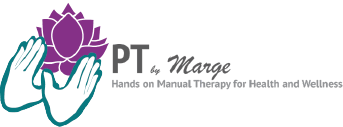Why Quality Sleep is the Key to “Never Ending” Recovery
Elite athletes are known to take good care of their bodies. Good nutrition and training play a big part on how well they perform and recover.
However, what many people do not know is that quality sleep also plays a major role in how well an athlete performs. And with good nutrition and training added to the mix, athletes can recover faster (including from injuries), and prolong their athletic careers.
LeBron James, Serena Williams, and Tom Brady are classic examples of athletes who continue to dominate with the aid of good nutrition, training, and quality sleep. And sleep also plays a critical role in their recovery process as well.
You may be thinking, “Well, Marge, that’s great and all, but these are elite athletes who are paid to perform at the highest level. They can afford to get help from trainers, dieticians, and sleep experts.”
Yes, these athletes do make a lot of money and can afford the services of trainers 24/7. In reality, however, these athletes are no different than you and I who want to perform at our highest levels each day and recover from injuries as quickly as possible.
Life does throw curveballs, and many Americans are overworked and stressed.
And while stress results in 75% of physician visits in the U.S. and is a leading cause of chronic diseases, quality sleep can help you better deal with stress.
Also, when dealing with an injury, quality sleep, in conjunction with manual hands-on therapy, greatly increases your chances of recovering at a much faster rate.
Think about it how you feel when you don’t get quality sleep. These are typical symptoms that occur:
You are irritated or moody
You are fatigued throughout the day
Your brain is in a fog
You can’t concentrate or think clearly
You struggle to be creative
You tend to eat unhealthily or maybe even invoke bad habits such as drinking alcohol or smoking
You are stressed
The list can go on and on of side effects when you don’t get enough sleep. But what happens when you do get quality sleep? Typically you experience the opposite of what was mentioned earlier.
You are more cheerful and happier
You have more energy
You can think clearly and be more creative
You make better diet choices
You are less stressed
You can recover from injuries much quicker
What’s interesting is that quality sleep impacts your ability to not only perform better but also your willingness to want to become better. Meaning, if you get good quality sleep, then you will be more inclined to exercise and take better care of your body.
If you focus solely on better nutrition and exercise and leave quality sleep out of the equation, then your chances of performing at peak or optimal levels are slim at best.
So what are some tips to help you improve your sleep?
Well, for starters, focus on getting a good seven to nine hours of sleep each night and be consistent with when you go to sleep. For instance, if you know you need to be up at 6 am during the week, then make sure you are asleep no later than 11 pm (10:30 pm is preferable).
Also, make sure lights are completely out, and no devices or TVs are on while you are trying to get sleep. These are known to disrupt your sleep patterns.
Avoiding alcohol is also a big one. Alcohol, as you know by now, is not good for your body for obvious health reasons. But it also messes with your sleep. Hence why you feel groggy or have a headache (or hangover) in the mornings because you did not get good sleep as a result of the alcohol.
Avoiding unhealthy foods, such as processed foods, should also be avoided before bedtime. In general, these foods should be avoided altogether, but when going to sleep, they should definitely be avoided as they are known to also disrupt sleep patterns.
If you struggle to fall asleep, then try using some sound effect sounds from a radio or app on your phone, like rain or beach waves.
Most of my patients who come in for manual hands-on therapy treatment want to operate at a higher level. They also want to recover from their injuries faster. I guide them through this process of how this can be achieved. But regardless of what methods I use, exercises I have you perform, or dietary recommendations I provide, none of this will help you if you are not getting good quality sleep.

